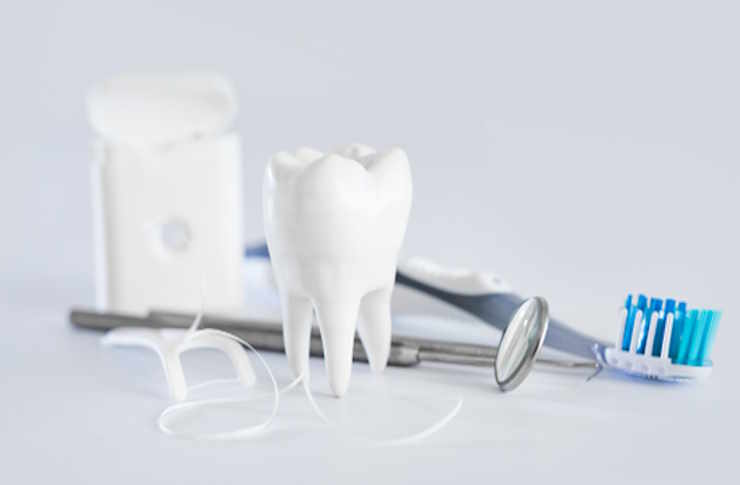The Surprising Health Benefits of Tongue Scraping
Did you know that a simple, ancient practice could significantly improve your oral health and overall well-being? Tongue scraping, a technique rooted in Ayurvedic medicine, is gaining traction in modern wellness circles. But what exactly is this practice, and why are health experts increasingly recommending it?

The Ancient Roots of Tongue Scraping
Tongue scraping, known as Jihwa Prakshalana in Ayurveda, has been practiced for thousands of years in various cultures. Ancient texts from India describe the practice as a crucial part of daily hygiene rituals, believed to cleanse not just the mouth but the entire body. In traditional Chinese medicine, the tongue is considered a mirror of internal health, with different areas corresponding to specific organs and systems.
Throughout history, tongue scrapers have been crafted from various materials, including gold, silver, copper, and even plant-based materials like neem twigs. The persistence of this practice across cultures and millennia suggests its potential significance in maintaining overall health.
The Science Behind Tongue Scraping
Modern research is beginning to validate what ancient wisdom has long claimed. The tongue is a breeding ground for bacteria, with its papillae-covered surface providing an ideal environment for microbial growth. This bacterial buildup, known as tongue coating or biofilm, can contribute to various oral health issues and even affect systemic health.
Studies have shown that tongue scraping can significantly reduce the bacterial load in the mouth. A 2004 study published in the Journal of Periodontology found that tongue scraping was more effective at removing volatile sulfur compounds (VSCs) – the primary cause of bad breath – than tooth brushing alone. Furthermore, research suggests that regular tongue scraping may help improve taste sensation by removing the coating that can dull taste buds.
Holistic Health Implications
The benefits of tongue scraping extend beyond oral hygiene. The practice is believed to have far-reaching effects on overall health and well-being:
-
Digestive Health: Ayurvedic principles suggest that tongue scraping stimulates the digestive system, potentially improving enzyme production and nutrient absorption.
-
Respiratory Function: By removing bacteria from the tongue, tongue scraping may reduce the risk of respiratory infections caused by the aspiration of oral microbes.
-
Detoxification: Some practitioners believe that tongue scraping aids in the body’s natural detoxification processes by removing toxins that accumulate on the tongue overnight.
-
Mindfulness and Self-awareness: The act of tongue scraping can serve as a mindful morning ritual, promoting body awareness and setting a positive tone for the day.
Implementing Tongue Scraping in Your Routine
Incorporating tongue scraping into your daily routine is simple and takes only a few minutes. Here’s how to get started:
-
Choose a scraper: Stainless steel or copper scrapers are popular choices due to their durability and antimicrobial properties.
-
Scrape gently: In the morning, before eating or drinking, gently scrape from the back of the tongue to the front. Rinse the scraper between passes.
-
Be consistent: For best results, make tongue scraping a daily habit, ideally performed alongside your regular oral hygiene routine.
-
Pay attention: Notice changes in your tongue’s appearance and overall oral health as you incorporate this practice.
Potential Challenges and Considerations
While tongue scraping is generally safe, it’s important to approach the practice mindfully:
-
Overzealous scraping can irritate the tongue, so gentle pressure is key.
-
Individuals with certain oral conditions or recent dental work should consult their dentist before starting.
-
Tongue scrapers should be cleaned thoroughly after each use to prevent bacterial growth.
-
While beneficial, tongue scraping should complement, not replace, regular brushing and flossing.
Tongue Scraping: Quick Tips and Fascinating Facts
-
The human tongue has over 10,000 taste buds, which can be more effective when free from debris.
-
Ancient Roman aristocrats used silver tongue scrapers as a symbol of wealth and hygiene.
-
Regular tongue scraping may help reduce the incidence of dental caries and gum disease.
-
The color and texture of tongue coating can provide insights into overall health, according to traditional medicine systems.
-
Some studies suggest that tongue scraping might improve the efficacy of probiotics by reducing competing harmful bacteria.
As we continue to rediscover ancient wellness practices, tongue scraping stands out as a simple yet potentially powerful tool for enhancing oral and overall health. By incorporating this millennia-old technique into our modern routines, we may unlock benefits that extend far beyond fresh breath. As with any health practice, consistency is key, and individual experiences may vary. Listen to your body, observe the changes, and consider discussing tongue scraping with your healthcare provider to ensure it aligns with your personal health goals.





